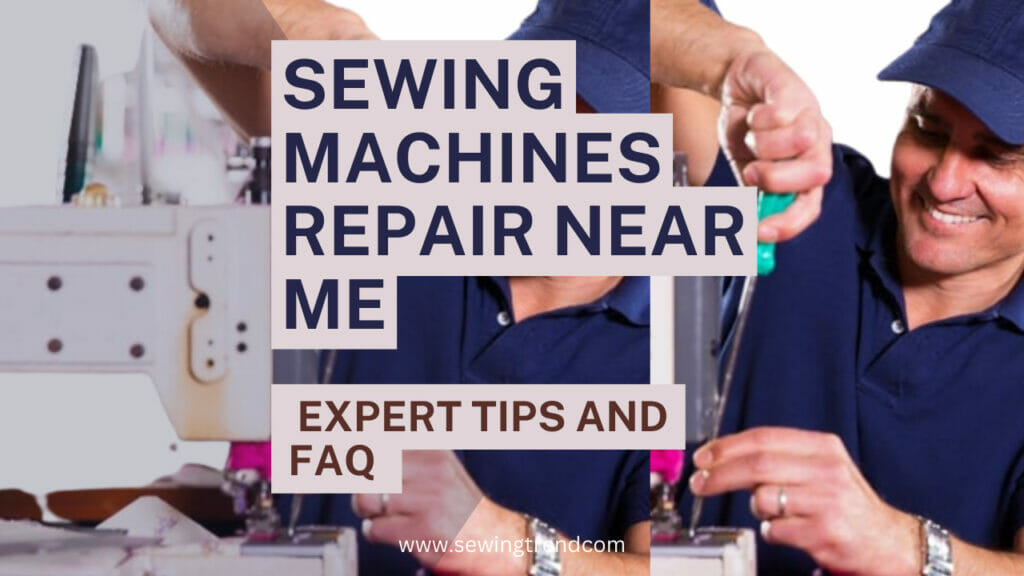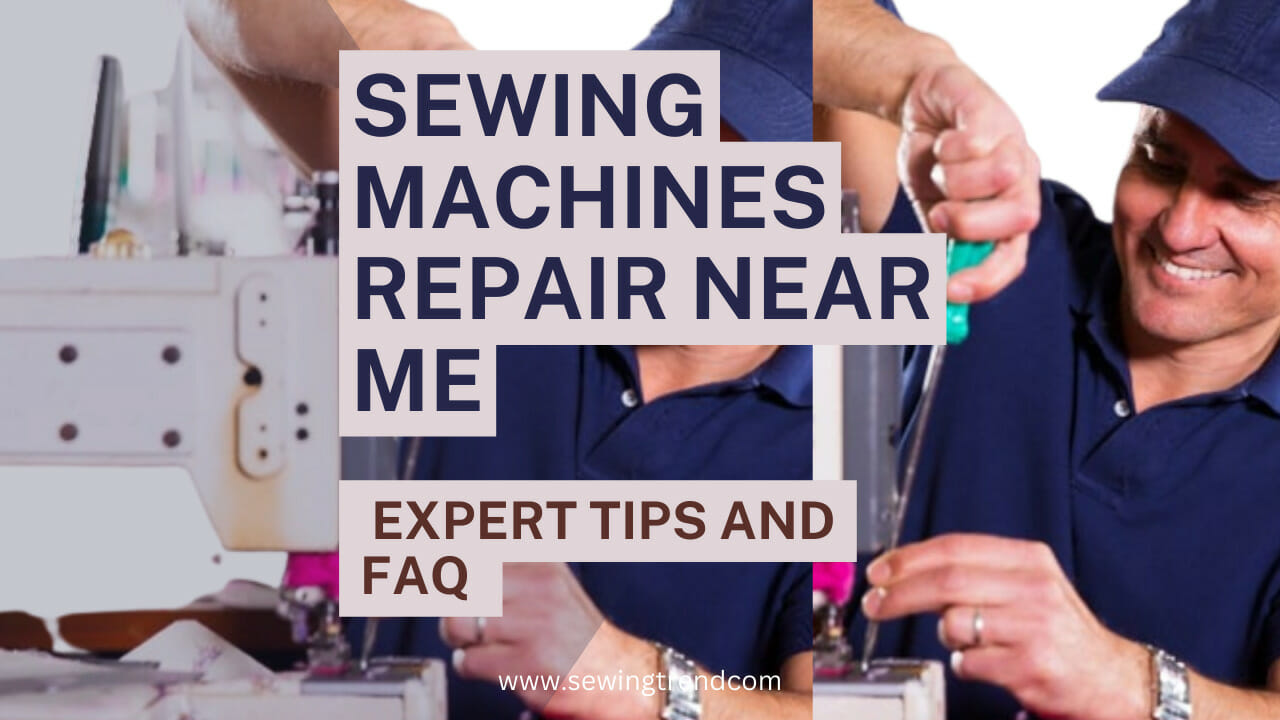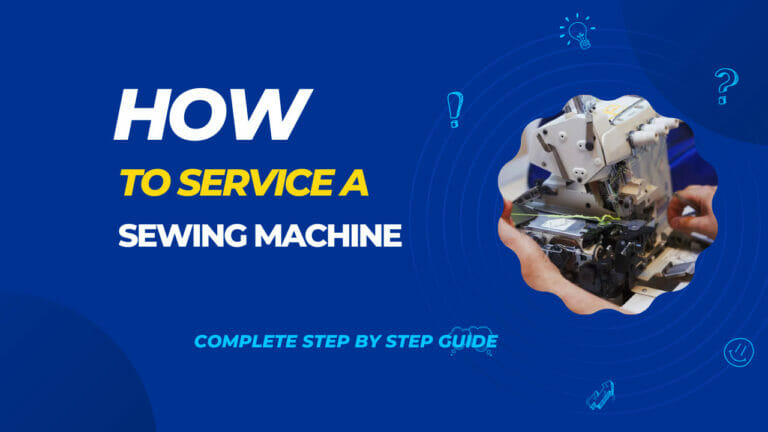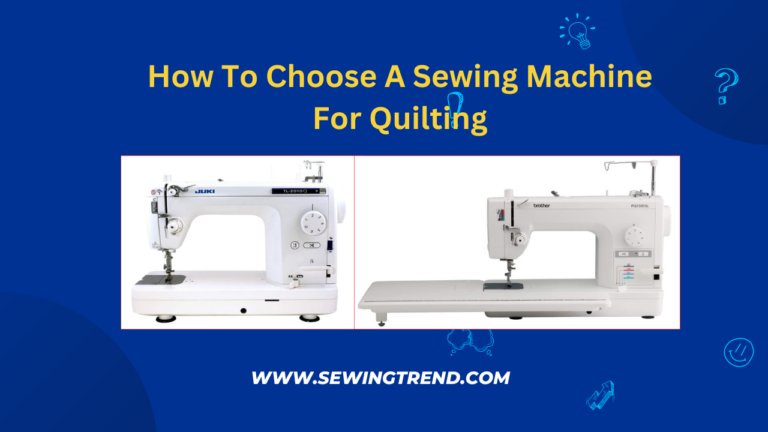Sewing Machines Repair Near Me: Expert Tips and FAQs for a Seamless Experience
Welcome to our comprehensive guide on sewing machine repair! Whether you’re an enthusiastic hobbyist or a professional seamstress, having a well-functioning sewing machine is crucial to bring your creative visions to life. However, like any mechanical device, sewing machines can encounter issues over time. That’s why it’s important to know about reliable sewing machine repair services near you.
In this article, we’ll explore the world of sewing machine repair near you. We’ll cover various aspects, including common problems, troubleshooting techniques, finding trustworthy repair services, and more. So, let’s dive in and ensure you have the knowledge and resources to keep your sewing machine in top shape!

1. Sewing Machines Repair Near Me
Sewing machines are intricate devices with various moving parts, and sometimes they may require professional attention. When searching for “Sewing Machines Repair Near Me,” you want to find experts who can diagnose and fix any issues your machine might be experiencing promptly. They should possess the necessary skills, experience, and expertise to handle a wide range of sewing machine models.
2. Why Is Professional Sewing Machine Repair Important?
Professional sewing machine repair offers several benefits, such as:
- Preserving Your Investment:
Sewing machines can be significant investments. By entrusting their repair to professionals, you protect your investment and extend the lifespan of your machine.
- Preventing Further Damage:
Attempting to repair a sewing machine without the proper knowledge and tools can result in further damage. Professionals understand the intricacies of different machine models and can prevent any unnecessary harm. - Maintaining Optimal Performance:
Regular maintenance and repairs can ensure your sewing machine continues to perform at its best, delivering precise stitches and smooth operation.
3. Importance of Sewing Machine Repair

A sewing machine is an essential tool for anyone interested in sewing, whether it’s for personal use or a professional business. Regular usage and wear can cause various problems, such as thread jams, skipped stitches, or motor issues. Seeking timely repair services can help prevent further damage and keep your sewing machine in optimal condition.
4. Benefits of Professional Sewing Machine Repairs
When faced with a malfunctioning sewing machine, some individuals may attempt DIY repairs. While it’s admirable to have a can-do attitude, professional sewing machine repairs offer several advantages. Skilled technicians possess in-depth knowledge and expertise, ensuring that your machine receives the necessary repairs without causing additional harm. They also have access to specialized tools and genuine spare parts, resulting in reliable and long-lasting repairs.
5. Signs Your Sewing Machine Needs Repair
It’s essential to recognize the signs that indicate your sewing machine requires professional attention. Some common indicators include:
- Unusual noises during operation
- Uneven stitching or skipped stitches
- Needle breaking or bending frequently
- Difficulty in adjusting tension
- Motor or foot pedal issues
- Inconsistent or incorrect stitching
If you notice any of these issues, it’s advisable to seek the assistance of a sewing machine repair service near you.
6. Finding Reliable Sewing Machine Repair Services Near You
When seeking sewing machine repair services near you, it’s crucial to find reliable professionals who can address your specific needs. Here are a few steps to help you find trustworthy repair services:
- Ask for Recommendations: Seek recommendations from fellow sewing enthusiasts, friends, or family members who have had positive experiences with sewing machine repair services.
- Check Online Reviews: Visit online platforms, such as Yelp or Google Reviews, to read feedback from previous customers. Look for repair services with consistently high ratings and positive reviews.
- Contact Local Sewing Machine Dealers: Reach out to local sewing machine dealers or retailers, as they often have repair services or can recommend reputable technicians.
Remember, it’s essential to choose repair services that specialize in sewing machine repairs specifically. General appliance repair shops may not possess the necessary expertise to handle the intricacies of sewing machine mechanics.
7. Questions to Ask a Sewing Machine Repair Service
Before entrusting your sewing machine to a repair service, it’s essential to ask a few key questions:
- Are you experienced in repairing the specific brand and model of my sewing machine?
- What is your turnaround time for repairs?
- Do you provide a warranty for the repairs conducted?
- Can you provide an estimate for the repair costs?
- Are you authorized to perform repairs under warranty?
By asking these questions, you can ensure that the repair service meets your requirements and offers reliable solutions for your sewing machine issues.
8. How to Maintain Your Sewing Machine
Regular maintenance is vital to keep your sewing machine running smoothly. Here are some essential maintenance tips:
- Clean the machine regularly, removing lint and debris.
- Change needles frequently to prevent damage and achieve consistent results.
- Lubricate the moving parts as per the manufacturer’s recommendations.
- Store the sewing machine in a dust-free and dry environment.
By following these maintenance practices, you can extend the lifespan of your sewing machine and minimize the need for repairs.
9. Common Sewing Machine Problems and Solutions
When it comes to sewing machine repairs, some issues are more common than others. Let’s take a look at a few problems you may encounter and how to address them effectively.
1. Tangled Thread or Bobbin
Problem: The thread or bobbin on your sewing machine keeps getting tangled, leading to uneven stitches or thread breakage.
Solution: Start by rethreading your machine, making sure to follow the proper threading path. Check the bobbin case for any lint or debris and clean it if necessary. Adjust the tension settings on your machine, ensuring they’re properly balanced. Finally, check that you’re using the correct type and weight of thread for your fabric. For more detailed instructions on how to service a sewing machine, refer to How to Service a Sewing Machine.
2. Skipping Stitches
Problem: Your sewing machine skips stitches or fails to form proper stitches altogether.
Solution: Begin by cleaning the needle area and removing any lint or debris that may be obstructing the needle’s movement. Ensure you’re using a fresh, high-quality needle suitable for your fabric type. Check the needle’s position and make sure it’s securely in place. Adjust the tension settings if necessary, ensuring they’re appropriate for your project.
3. Uneven Tension
Problem: Your sewing machine produces stitches with inconsistent tension, resulting in uneven fabric feed or puckering.
Solution: Start by rethreading both the top thread and bobbin, following the proper threading paths. Check the tension settings on your machine and make sure they’re correctly balanced. Additionally, examine the needle and ensure it’s the correct size and type for your fabric. If the problem persists, consult a professional sewing machine repair service.
10. Troubleshooting Tips for Sewing Machine Issues
Sometimes, you may encounter minor sewing machine problems that can be resolved with some simple troubleshooting. Here are a few tips:
- Re-thread the machine, ensuring proper thread placement and tension.
- Check the bobbin for tangles or jams and reinsert it correctly.
- Replace the needle with a new one to ensure it is not bent or damaged.
Remember, if the issue persists or if you are unsure of the cause, it’s best to consult a sewing machine repair professional.
11. The Role of Regular Servicing in Sewing Machine Maintenance
In addition to timely repairs, regular servicing of your sewing machine plays a crucial role in its overall maintenance. A professional servicing session includes thorough cleaning, lubrication, and adjustments, ensuring optimal performance. It also helps identify any underlying issues before they become major problems, saving you time and money in the long run.
12. Upgrading vs. Repairing: Making the Right Choice
When faced with significant sewing machine issues, you may be torn between repairing the existing machine or investing in a new one. Several factors can influence this decision, such as the extent of damage, cost of repairs, age of the machine, and personal preference. Seeking advice from a trusted sewing machine repair service can help you make an informed choice.
13. Sewing Machine Repair Costs: What to Expect
The cost of sewing machine repairs can vary depending on factors like the type of repair needed, the brand and model of the machine, and the labor charges of the repair service. Minor repairs may be more affordable, while major issues could be costlier. Requesting a detailed estimate from the repair service can give you a better understanding of the expected costs.
14. Online Resources for DIY Sewing Machine Repair
For those who enjoy tackling minor sewing machine repairs on their own, several online resources can be valuable references. Websites, video tutorials, and forums dedicated to sewing machine repair provide step-by-step instructions and helpful tips. However, it’s important to exercise caution and consult professionals for complex repairs or if you are uncertain about the issue.
15. Choosing a Reliable Sewing Machine Repair Technician
When choosing a sewing machine repair technician, it’s crucial to select a reliable and trustworthy professional. Consider factors like experience, reputation, customer reviews, and certifications. A skilled technician with a track record of providing excellent service can ensure that your sewing machine is in safe hands.
16. Customer Testimonials: Satisfied Sewing Machine Owners
Here are a few testimonials from satisfied sewing machine owners who have benefited from professional repair services:
- “I thought my sewing machine was beyond repair, but the technician at XYZ Repair Services worked wonders! It’s running smoothly now, and I couldn’t be happier.” - Sarah T.
- “I highly recommend ABC Sewing Machine Repairs. They fixed my tension issues in no time and even gave me some helpful tips for maintenance. Great service!” - John R.
17. Conclusion
We hope you found our article on sewing machine repair near you informative. A broken sewing machine can be a real headache, but there are many repair options available to help you get back to your sewing projects. Whether you need a simple tune-up or more extensive repairs, there are many repair shops and technicians ready to get your sewing machine back in working order. Remember to always do your research before entrusting your sewing machine to a repair shop or technician. Check out reviews, ask for recommendations, and look for certifications. Thank you for reading, we hope you found our article helpful in finding a sewing machine repair service near you!
FAQs
How often should I get my sewing machine serviced?
It is recommended to get your sewing machine serviced annually or after every 100 hours of use, whichever comes first. Regular servicing helps prevent major issues and keeps your machine in good working order.
Can I repair my sewing machine by myself?
Minor repairs and troubleshooting can be done at home with the help of online resources and tutorials. However, for complex issues or if you are unsure about the problem, it’s best to seek professional help to avoid further damage.
What is the typical turnaround time for sewing machine repairs?
The turnaround time for sewing machine repairs can vary depending on the repair service and the extent of the issue. It’s best to inquire about the estimated time when contacting a repair service.
How much does the sewing machine repair cost?
The cost of sewing machine repairs depends on the nature of the repair, the brand and model of the machine, and the labor charges of the repair service. It’s advisable to request a detailed estimate before proceeding with the repairs.
Is it better to repair or replace a sewing machine?
The decision to repair or replace a sewing machine depends on factors such as the extent of damage, cost of repairs, age of the machine, and personal preference. Seeking advice from a professional can help you make the right choice based on your specific situation.







